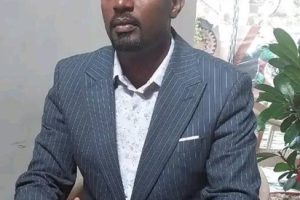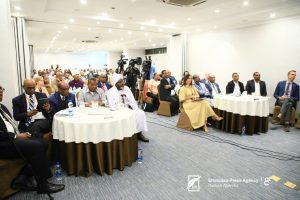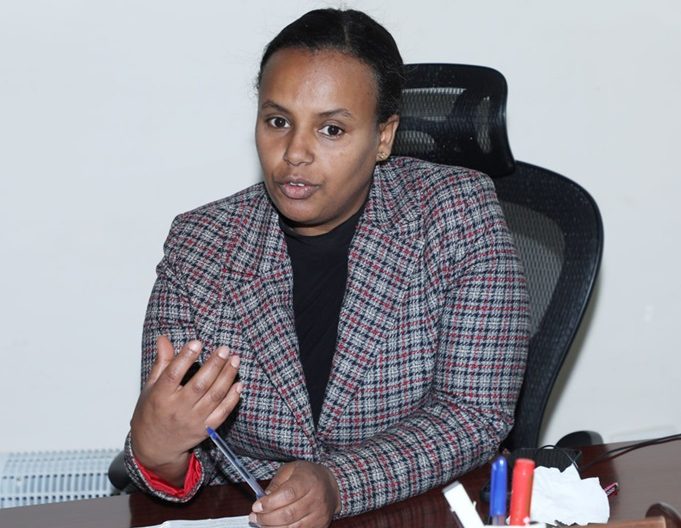
Despite numerous challenges, the Ethiopian National Dialogue Commission (ENDC) is making significant strides in promoting inclusive, participatory, and constructive dialogue across the country, according to the commission and political parties.
In an interview with the Ethiopian Press Agency (EPA), ENDC Commissioner Belen Gebremedhin shared that the commission has been actively implementing various initiatives over the past three years, drawing lessons from international experiences to ensure a successful dialogue process.
“Countries follow different National Dialogue processes based on their unique contexts. Ethiopia is adapting its approach by learning from these experiences. Tunisia, for example, is known for its effective dialogue, despite having fewer participants, due to the strength of its communication, which has even attracted global attention,” she said.
Belen added that the ENDC is working towards sustainable peace through an inclusive dialogue process, which has involved a participatory approach, trust-building, and state-level dialogues across various regions.
She further highlighted that political parties, teachers’ associations, district administrators, religious institutions, youth, women, persons with disabilities, traditional associations (edir), media partners, and other stakeholders are participating, fostering a sense of ownership.
“The National Dialogue offers a clear and direct approach to addressing the country’s challenges, ensuring sustainable peace by promoting national consensus, reconciliation, unity, and shared goals,” she said.
The Commission has also focused on addressing previously overlooked issues, including marginalized districts in Southern, Southwestern, and Benishangul-Gumuz states, with an emphasis on discriminated groups and fostering societal connections.
Despite these efforts, challenges such as sporadic conflicts, inadequate logistics, and irresponsible social media continue to impede progress. To address these, the Commission is collaborating closely with various partners to ensure lasting peace, Belen explained.
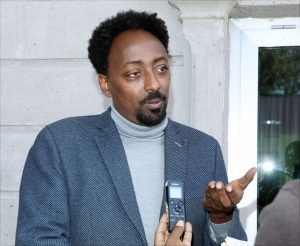
Another ENDC Commissioner, Ambaye Augato (PhD), shared plans for a large-scale dialogue in Oromia State, which will involve participants from over 350 districts. The dialogue will include farmers, pastoralists, women, youth, community leaders (Aba Gedas), and others, with more than 7,000 participants expected in Adama. This will be the first event of its kind in terms of participation numbers. Given Oromia’s size and diversity, a wide range of agendas will be presented to foster introductions and relationship-building among participants.
Ambaye emphasized that traditional conflict resolution methods are also being integrated into the National Dialogue, contributing to the development of a more democratic and constructive system.
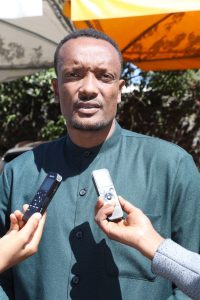
Ethiopian Political Parties Joint Council Chairperson Solomon Ayele noted that the National Dialogue, being a new initiative in Ethiopia, requires a multi-sectoral approach to fully engage all communities.
Solomon added that despite ideological differences, most political parties are united for Ethiopia’s unity and believe the National Dialogue is crucial for resolving disputes and advancing national development responsibly. He stressed that the dialogue should expand democratic views, bridge gaps, and address conflicts to ensure sustainable development.
The Council has been actively supporting the process, assigning leaders to oversee the dialogue. Of the 50 political parties in the Council, 45 are participating, with efforts to involve the remaining five. Solomon emphasized that without the involvement of political parties, the National Dialogue cannot be effective. “Active political participation is essential to safeguarding the national interest,” he concluded.
BY MESRET BEHAILU
The Ethiopian Herald December 8/2024



